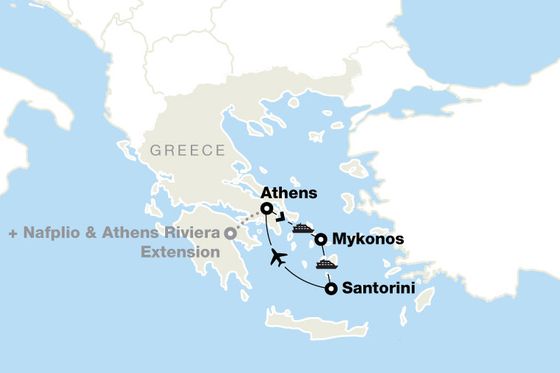
8 things to know for your first trip to Europe
Planning on visiting Europe for the first time? Here are 8 things to know before your trip.
Planning on visiting Europe for the first time? Here are 8 things to know before your trip.

1. Make sure you have a valid passport
If you’re traveling from the US or Canada, you won’t need a visa to visit Europe—but you do need a valid passport. If you’ve already got one, check the expiration date and make sure it’ll still be valid for at least six months after your trip. If you need a passport or have to renew yours, start the process as soon as possible!
2. Currency exchange and using credit cards
Many countries in Europe use the euro, but a few popular destinations—like England, Sweden, and Switzerland—don’t. So, it’s a good idea to check out the currency info in your “Tour FAQ” before exchanging any money. Some travelers like to have a little cash on hand before their trip, just in case. You can also use your debit card at international ATMs, which you can find and airports, hotels, and banks in your destination—just remember that your bank may charge a small fee for foreign transactions.
As far as credit cards go, Master Card and Visa are widely accepted in Europe. Many major cards waive foreign transaction fees, but double-check your policy before you plan to use it!
Need more tips on exchanging currency for your first trip to Europe? Check out our post here.
3. Learn the language (just a little!)
You don’t need to be fluent in French or Swedish to get by on your first trip to Europe. Many Europeans speak very good English, especially in major cities, but knowing a few key phrases is a good way to connect with locals and get immersed in the culture. Brush up on your German, French, Spanish, and Italian before you go!
4. Pack smart for your trip
The best packing advice for any trip is always to pack light. You shouldn’t bring more than one checked bag and one carry-on for your first trip to Europe; you may be taking train rides, ferries, or other plane rides where you won’t want lots of luggage with you.
Our experts recommend packing light layers, bringing clothes you can plan to re-wear, and saving a little room in your suitcase for souvenirs! Need more packing tips for your first trip to Europe? Check out all our packing advice here.
5. Get a power adapter
You’ll need a power adapter if you want to charge your phone or use any of your own electronics during your trip. A power adapter lets you use foreign outlets, while a converter will change the voltage if your electronics require different power. In Europe, most outlets are C, E, and F type with two or three prongs. Not sure what you’ll need? Check out our detailed guide to power adapters and converters for your trip.
6. Beat jet lag
A lot of travelers worry about jet lag for their first trip to Europe, and while it’s definitely an issue the good news is that it’s easy to beat with a little preparation. First, try and sleep as much as you can on the plane. When you arrive, set your watch to your destination’s local time. Go for a walk, grab a coffee, and keep busy until bedtime—staying up will help you snap into a regular routine in no time!
Check out all our tips for fighting jet lag on your first trip to Europe.
7. Stay connected in Europe
Many wireless carriers offer international phone plans, but they can be expensive. When our team travels to Europe, connecting to local Wi-Fi and staying on airport mode to avoid charges is a popular option. But there are other ways to stay connected, including purchasing an international SIM card. Check out all our tips for using your phone abroad!
If you’re worried about getting lost and not having internet access, don’t sweat! With Google Maps, you can download maps of your destination to use even when you’re offline.
8. When is the best time to visit Europe?
Now that you’re prepared for your first trip to Europe, the only question left is: When is the best time to go? The good news is that Europe dazzles all year long, whether it’s summertime along the Mediterranean or winter at a Christmas market. But one of our team’s favorite times to visit is during the off-season, when there are fewer crowds and comfortable weather—just to name a few!
Do you have any Europe travel tips? Share them with us on Facebook!





































































































